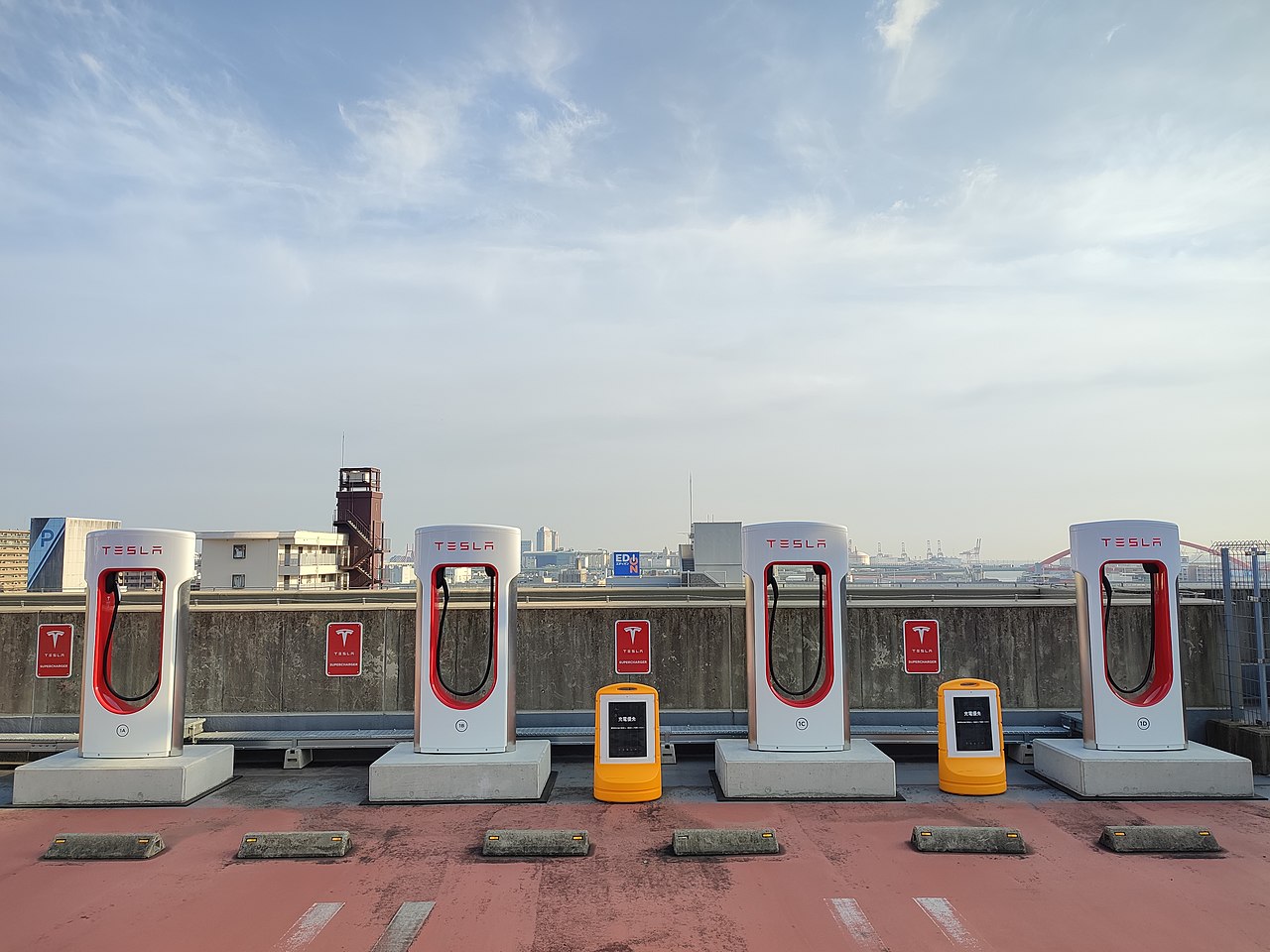Nickel, clean energy, and power politics

Tesla Superchargers
Hailey Brown - Clean energy sources are essential to combatting climate change. However, the rarity of important minerals has slowed the transition. Indonesia has an abundance of nickel, a material necessary for building lithium-ion batteries. Lithium-ion batteries power electric vehicles and provide energy storage. In order to capitalize on profits from the rare resource, Indonesia does not export raw nickel, forcing countries that want access to its nickel to invest in processing facilities. Chinese companies have capitalized on this, controlling a large portion of production. Trade of nickel products could transform Indonesia’s economy, but early investment by Chinese firms has caused geopolitical tensions.
Great world powers, including China, see the new clean energy sector as an avenue to enhance material and relational power. The resources that fuel alternative energy sources are rare, and essential to the new, growing industry. So having control over the resources puts the owner in a powerful position. China assumed one of the central roles in extracting and refining Indonesia’s nickel. And while this position has benefitted China, it has hurt Indonesia. In the U.S., individuals can receive tax credits for the purchase of electric vehicles including parts made in the U.S., or by countries that have a friendly trade agreement with the U.S.. However, Indonesia has not been given ‘friendly’ status due to Chinese involvement in its nickel production. This means Indonesia loses out on profits driven by American consumption, either through tax credits or American car producers, like Tesla, placing factories in the country.
The United States hesitation to support Chinese-backed nickel or similar resource production stems from its geopolitical position. Along with other allies, the U.S. does not want China’s technological prowess to grow. Currently, China controls around 80% of processing for minerals used in alternative energy forms. This is a pretty powerful chip of material power, which enhances China’s relational power on the global stage. Boycotting Indonesian nickel and finding other places to control mineral production is a way for the U.S. to increase its relational power with China. Yet, this hurts Indonesia’s position, and the push toward renewable, clean energy.
Image source: Masahiko OHKUBO, CC BY 2.0

